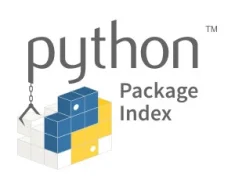The Social Interoperability of Large Language Models
The ongoing evolution of Artificial Intelligence (AI) is rapidly changing various industries, with healthcare being one of the most impacted. A new paradigm shift in AI is the concept of social interoperability of Large Language Models (LLMs). This concept involves LLMs communicating, collaborating, and forming alliances, friendships, and rivalries, leading to a new techno-social dynamic. This transformative shift fuels the potential for multiple LLMs working together, generating innovative insights and driving collective behaviors.
LLMs and Collaborative Intelligence
LLMs’ capability to understand and cooperate with each other raises the possibility for collaborative intelligence. The dynamics among LLMs can be compared to human social systems, including partnerships and competitions. This collaborative intelligence can lead to varied social engagements and a surge in innovative solutions. The shift towards this form of intelligence has significant implications, particularly for the healthcare sector.
Role of LLMs in Healthcare
LLMs have a crucial role to play in healthcare. They can integrate diverse data sets, constructing knowledge graphs for managing big data and enhancing efficiency in research. The seamless flow of data, however, will require standards and interoperability. It is here that the social interoperability of LLMs becomes critical. When LLMs can understand and communicate with each other, they can streamline data flow, contributing to the development of AI tools for health.
Challenges and Opportunities
The journey towards achieving interoperability in digital healthcare data is not without challenges. The surge in demand for high-quality, current healthcare data due to generative AI highlights profound gaps in data and IT system interoperability. Researchers often need assistance from costly expert technical teams, which is generally within reach only for premier health systems and academic medical centers, leading to underrepresentation of the diversity of patients, producing disparities and distortions. However, these challenges also present opportunities for improving the current healthcare data ecosystem.
Standardization, Regulation, and Ethics
As LLMs and AI systems become more integrated with society, the need for standardization and regulation becomes evident. Ethical considerations, such as data privacy and security, become paramount. The human-AI interaction also needs to be managed carefully to ensure the technology serves its purpose without compromising human values or societal norms. Achieving social interoperability of AI is not just about technological advancements, but also about building a framework that considers the ethical, societal, and regulatory aspects of AI integration.
Conclusion
The social interoperability of LLMs and their move towards collaborative intelligence is a new frontier in AI development. It holds immense potential to transform healthcare, research, and knowledge management. While the road to achieving full interoperability is fraught with challenges, the opportunities it offers for improving healthcare outcomes are significant. As we continue to navigate this new terrain, it is crucial to maintain a balanced perspective that considers technological advancements alongside ethical and regulatory implications.




